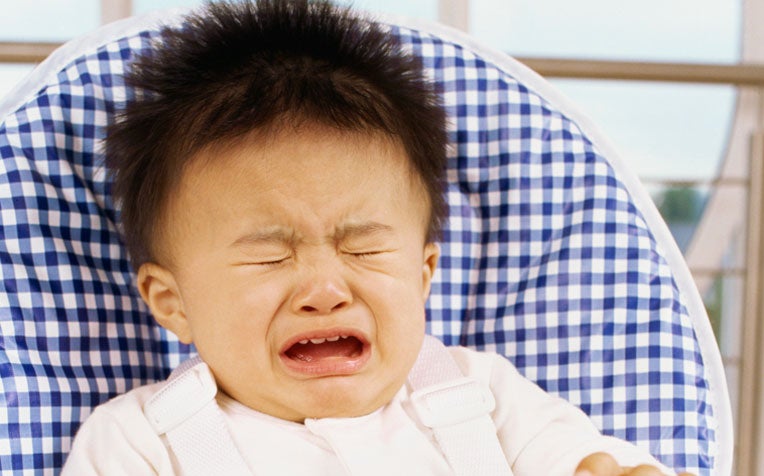
Colic in babies is typically short-lived and improves on its own.
Managing a colicky baby can be distressing for parents, particularly a mother suffering from postpartum depression. In severe cases, the colic may affect mother-baby bonding.
Fortunately, the good news is that colic is typically short-lived and improves on its own. By the age of three months, your baby should feel better and the incessant crying should ease significantly.
Drug treatment generally is not required for colicky babies unless there is a likelihood of gastroesophageal reflux disease (GERD).
What to do when your baby is crying
Colic typically requires more management than treatment with the crying baby needing to be soothed and comforted. A colicky baby can be soothed with gentle rhythmic movements such as rocking or swinging in a child swing. A car ride may also be comforting for a crying baby. Cuddling or swaddling can help to make the baby feel secure.
“Some babies quieten to the sound of white noise, for example, the sound of a washing machine or fan,” says Dr Alison Snodgrass, Consultant,General Paediatrics and Adolescent Medicine Service, KK Women's and Children's Hospital (KKH), a member of theSingHealth group.
Burping the baby more often during feeding may help to get rid of any swallowed air that may be causing discomfort. Wind drops (simethicone) may benefit some babies.
Dietary modifications for both the baby and the breastfeeding mother may help with the management of colic. These modifications, mostly unproven, include:
- A change in formula for formula-fed babies who may be allergic to a particular type of milk protein.
- In the case of breast-fed babies, a low-allergen diet for breastfeeding mothers (avoiding dairy and foods such as soy, egg, peanut, wheat and shellfish) may offer relief for some colicky babies.
“However, current evidence about these dietary modifications is inconclusive and caution is advised as overly restrictive diets may compromise the mother’s and infant’s nutrition,” says Dr Snodgrass.
She says the parents of a colicky baby would also benefit from having alternative caregivers for their baby so they can get some respite from the baby crying.
When to see a doctor for your baby's colic
Parents should seek medical help if their colicky baby is:
- Feeding poorly
- Vomiting
- Has diarrhoea or blood in the stools
- Has fever
- Appears lethargic or otherwise unwell
Go to the previous page to learn about symptoms and causes of colic.
Ref: N18
Related Articles
Public Events
Get the Health Buddy App
© 2025 SingHealth Group. All Rights Reserved.


















 Get it on Google Play
Get it on Google Play